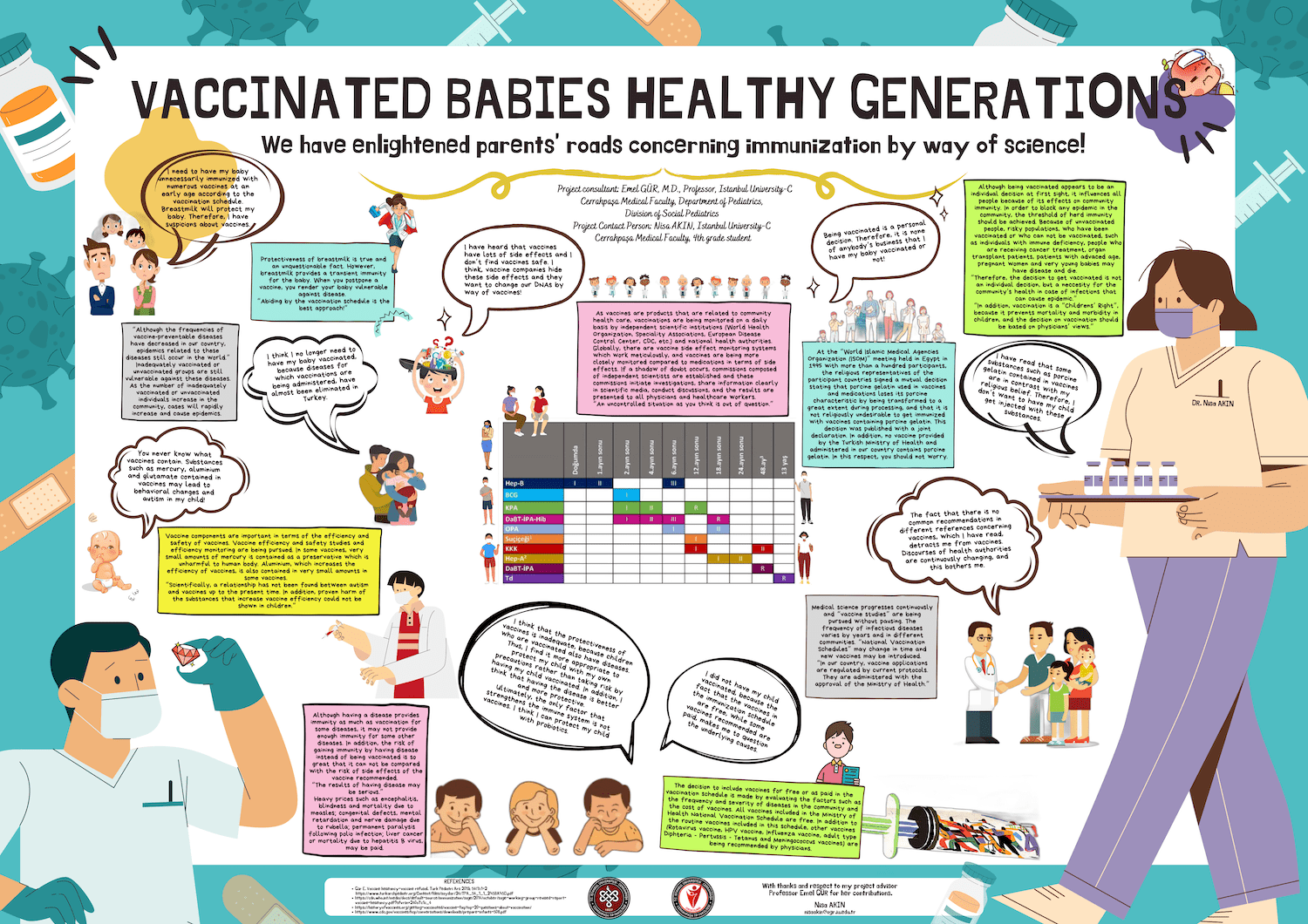
Vaccine Hesitancy and Solutions
Vaccine hesitancy and vaccine refusal cases, which have rapidly increased in the last two decades globally and in the last decade in our country, have recently caused a marked reduction in immunization rates and led to measles epidemics and increased mortality rates related to measles in almost every region across the globe. Vaccine hesitancy originates from factors associated with individual perceptions and social environment or many factors directly associated with vaccines and immunization as well as from sociocultural, environmental, economic and political reasons. Each community should specify their own risk factors and develop solution-oriented strategies in combatting vaccine hesitancy. The primary precautions to be taken include raising awareness of the importance and necessity of vaccines, developing solutions related to the factors leading to vaccine hesitancy and imposing sanctions against spreading anti-vaccination ideas. Physicians play a very important role in combatting vaccine hesitancy, and appropriate communication is an efficient tool for preventing vaccine hesitancy. Healthcare workers should be sensitized in terms of vaccine hesitancy and supported by in-service training applications.In our board titled “ Vaccinated Babies Healthy Generations” which we prepared together with Nisa Akın, Istanbul University-Cerrahpaşa, Cerrahpaşa Medical Faculty 4th grade student, we present interactive parent-physician dialogues composed of questions and answers including issues that frequently lead to vaccine hesitancy such as suspicions related to efficiency and necessity of vaccines, pursuits for natural methods which may be potential alternatives for vaccine applications, concerns related to adverse effects of substances contained in vaccines and their incompatibility with religious beliefs, mistrust towards companies that produce vaccines, confusion related to variance of immunization schedules in time or between different populations and the belief that vaccination applications are contradictory to human rights and freedom. This board enriched with pictures will be guiding for physicians and healthcare workers.
I think that this board will provide sensitivity in terms of vaccine hesitancy for all healthcare workers and will also be enlightening in coping with vaccine hesitancy. Therefore, I recommend that this board should be extended by translation to different languages. Responsing parents, who share their concerns related to vaccines with healthcare workers, with noncomplex and comprehensible sentences based upon a scientific foundation, is an important step in eliminating vaccine hesitancy. In the dialogue between parents and healthcare workers, however, the primary factors in coping with vaccine hesitancy include proficient application of verbal and nonverbal communication skills by healthcare workers, emphasizing that the mutual objective of parents and healthcare workers is the best interest of the child, and avoiding accusing parents because of vaccine hesitancy but defending definitely that the best way is to accept scientific facts. During interviews, physicians should share the scientific studies related to vaccines and immunization applications, their experiences related to vaccinations, and their approaches in terms of vaccinating themselves and their relatives, and these dialogues should be pursued resolutely at each visit until hesitancy is eliminated..
“Healthy Life” is the right of every child. Pediatric health follow-up and vaccination applications should be pursued without delay. Healthcare workers including mainly physicians should be the strongest defenders of vaccines..
Prof. Dr. Emel Gür Istanbul University-Cerrahpaşa Cerrahpaşa Medical Faculty Department of Pediatrics Head of Department of Social Pediatrics
References:
Gür E. Vaccine hesitancy-vaccine refusal. Turk Pediatri Ars 2019; 54(1):1-2 https://www.turkarchpediatr.org/Content/files/sayilar/24/TPA_54_1_1_2%5BA%5D.pdf
https://historyofvaccines.org/getting-vaccinated/vaccine-faq/top-20-questions-about-vaccination/
https://www.cdc.gov/vaccines/hcp/conversations/downloads/prepare-infants-508.pdf



